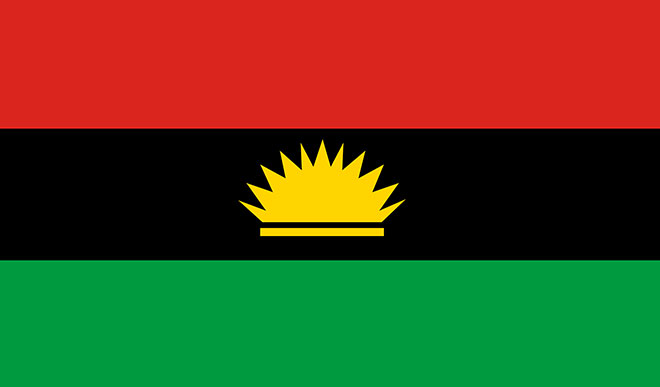Never again: Rwanda genocide and Biafra agitation
After the genocide in 1994, Rwanda continued to exist. In remembering its dead after the tragedy, a museum was created in their honour with a bold inscription: ‘’Never Again’’. This is the best that has happened to those victims of human cruelty. With the above understanding, it has become imperative for us at the Foundation […]


After the genocide in 1994, Rwanda continued to exist. In remembering its dead after the tragedy, a museum was created in their honour with a bold inscription: ‘’Never Again’’. This is the best that has happened to those victims of human cruelty.
With the above understanding, it has become imperative for us at the Foundation for Peace Professionals to redirect a certain misconception about the Rwanda genocide that is being thrown around by analysts, when they comment on the implication of ethnic based secessionist hate campaigns in Southeast Nigeria, which if not carefully handled, could lead to a similar thing as experienced in Rwanda. While most commentators are right in quickly referring to the Rwanda experience in other to caution agitators on the consequences of their actions, it is important to bring us to another perspective that is yet to be properly looked at and fully appreciated.
In 1994, when the ethnic based hate campaign began in Rwanda, the total population of the country was just a little over six million.
Hate campaigns by Hutu agitators against the Tutsi eventually led to genocide, which claimed almost one million lives in just about 100 days. The casualty figure is over 16 per cent of the total population of the country.
Nigeria today has more than 180 million people and 16 % of it is a little below 30 million.
What happened in Rwanda that year was the gruesome murder of innocent and defenseless 16 per cent of its total population due to perceived feeling of marginalization and expectation that the mass murder of another ethnic group may possibly lead to secession.
The question we must all ask is; “What happened to Rwanda after losing 16 per cent of its population in mindless killings? Were the expectations of those who led the hate campaign fulfilled? What does the one million lost lives amounted to?”
The answer to the above questions remained a united Rwanda. It was too late, when those who expected division as a result of the mass murder discovered that the killing of their fellow country men and women would not make a country divide. Those who also thought that instigating hatred against fellow country people would help them in their quest for separation were also disappointed. This points to the fact that, if you promote hatred against other ethnic groups in your country for whatever reason, you have to be ready to live with the hate, because it won’t help you fulfill your separatist agenda.
In a report by the UK Guardian to commemorate 20 years of the Rwanda genocide, victims were reported to have said they now live in the same country with those who killed their families.
“The killers are our neighbors now,” one respondent said.
Furthermore, one of the perpetrators of the hate campaign and killing, Thomas, said he learned a lesson from the killing. He said: “You find out that killing is not a solution. We killed thinking we would get something and we found out it only brought misery.”
What they didn’t want to do before, which is tolerance, is what they have learned now to do the hard way. The people are now learning to tolerate the people they hate, though difficult, but necessarily.
After the conclusion of the Rwandan genocide, the new Rwandan government was having difficulty prosecuting approximately 130,000 alleged perpetrators of the genocide.
What must be understood here is that, in this 21st century, any secessionist group that gains notoriety with hate speech is as good as a nuisance and misplaced agitation. It will never achieve its aim.
Rwanda teaches us that, not even the death of 16 per cent of the total population will change this fact.
In other words, you can instigate hate as much as you want in your agitation, you can even lead the country to war and genocide, but one fact is clear, you will never achieve anything. Not the separation, not the fulfillment. So why promote hatred among people on the basis of quest for separation?
Additional lesson learned from Rwanda is that, instigating hatred against fellow human beings on the basis of ethnicity will not be rewarded by the global community. Hate speech is a crime in international law. The world didn’t reward Hutus in Rwanda, it won’t reward any other agitators in any part of the world.
The Nigerian civil war, which claimed about three million lives, also offers another lesson. Despite losing that number of citizens, the aims of the promoters of the war were never achieved. The global community will not aid personal ambition of individuals or groups at the expense of the general good.
It is on this basis that we are calling on the leaders in Southeast region to prevail on their sons and daughters to allow reason prevail. The need for peace cannot be over emphasized. All those who succeeded in their agitation across the world only did because of their decency and peaceful approach. The world saw that though they are agitating for a just cause, but did it decently within the confines of the international standards. The same cannot be said of the agitation in the Southeast. I appeal that we shouldn’t allow Nigeria become a 21st century Rwanda, which only offered 16% of its population to a futile quest. Never again.
Abdulrazaq O. Hamzat is the Executive Director, Foundation for Peace.
